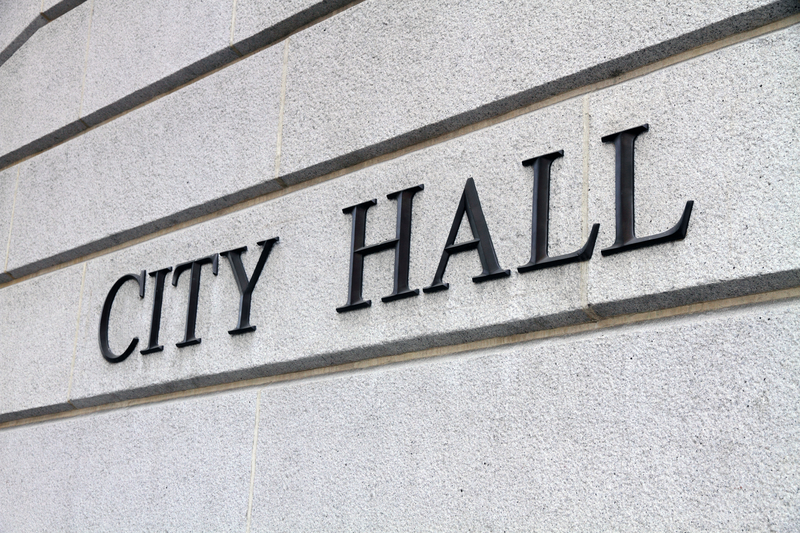
How cities are putting ethics at the core of digital innovation
10 September 2025
by Eurocities
Digital technologies are reshaping how European cities govern, deliver services, and engage with residents. Local administrations are not only experimenting with artificial intelligence (AI), data-driven services, and automation, but also grappling with how these innovations intersect with public values. The challenge is not simply whether a technology works, but whether it works in a way that is transparent, fair, and aligned with democratic principles.
The Eurocities Digital Forum Lab provides a collaborative space for cities to tackle this and other challenges, shaping the future of responsible digital transformation. Its work in 2025 focused on three key areas: digital twins, ethics and innovation, and the use of public sensors. Through these workstreams, the Lab offers cities concrete tools and strategies to embed public values in their digital policies and ensure technology serves people and places.
“Responsible innovation must be at the heart of digital transformation, especially when we are dealing with public administrations,” says Riccardo Saraco, Project Manager at the EU Funds and Innovation Department in the City of Turin. “By adopting regulation tools and governance models so they can get ready and explore the benefits of emerging technologies while minimising risks and avoiding negative impacts for the society.”
Eindhoven’s ethical coaches and committee model
Eindhoven has taken a particularly distinctive approach by embedding ethics directly into the workflow of its administration. The city relies on “ethical coaches” who guide teams through structured conversations on the value implications of their projects. These are not one-off consultations, but recurring discussions built into decision-making. Coaches help staff organise and guide structured conversations within teams and departments to explore ethical dilemmas related to innovation, technology, and policy decisions.
Alongside this, Eindhoven has set up an external ethics committee. Meeting four times a year, it provides independent advice to the municipal executive and council, particularly on how to balance competing public values when technologies pose trade-offs. Reports are published annually, ensuring not only reflection but accountability in how recommendations are taken up.
Helsinki’s AI register and ethical principles
Helsinki, meanwhile, has pursued transparency as the anchor of its approach. Its AI register offers a public window into the algorithms and systems the city deploys. The register offers a transparent view into the AI systems used by the city, providing both concise overviews and more detailed information, and allowing users to explore the systems according to their interests. Importantly, residents are invited to give feedback, turning transparency into dialogue.
The register is tied to Helsinki’s broader ethical principles for data and AI. These principles emphasise explainability, non-discrimination, and accountability. Respect for human dignity and rights is central to every data and AI application. Since such systems may unintentionally reinforce existing biases, potential discrimination risks are carefully assessed and positive action taken to support equality as needed.
Turin’s board on emerging technologies
Turin has built its own governance architecture with the Board on the Ethical Use of Emerging Technologies for Urban Innovation. Established in 2024, the Board brings together both municipal staff and external experts, selected via public call to ensure a diverse range of knowledge. Meeting quarterly, it issues recommendations on how projects align with values such as fairness, transparency, and human rights. It also assists in risk management and the development of local governance guidelines, ensuring that ethical reflection is embedded into policy as much as into technology.
Shared challenges for European cities
Despite these promising approaches, cities face shared structural challenges. Large administrations are often fragmented, with departments developing their own digital projects in isolation. This structure can pose significant challenges for coordinating digital efforts across the entire organisation, implementing shared practices, and ensuring consistent ethical standards. A lack of coordinated oversight is another barrier: many municipalities do not yet have dedicated bodies for ethics, leaving governance patchy.
Cultural resistance can also hinder progress. Traditional bureaucratic models often struggle to keep pace with rapid technological change. Resistance to innovation, entrenched administrative practices, and risk-averse cultures within public institutions frequently limit their ability to effectively implement new digital tools. Ethics, in such contexts, risks being treated as a compliance exercise rather than a driver of innovation.
The guidance: dealing with ethics and innovation
The Eurocities Digital Forum Lab has brought together city leaders to reflect on how ethics can be made integral to innovation. Its recently published guidance, Dealing with Ethics and Innovation (available for Eurocities members only), captures key insights and concrete tools. It stresses from the outset that ethics is essential for responsible innovation, and that embedding values like transparency, fairness, and accountability into governance is not optional but indispensable.
There’s no one-size-fits-all approach, since local contexts differ in resources, institutional structures, and political culture. However, there are plenty of concrete tools already available, such as flexible methodologies that can be adapted, such as the Data Ethics Decision Aid (DEDA), the Fundamental Rights and Algorithms Impact Assessment (FRAIA), and the Fundamental Rights Impact Assessment (FRIA) required under the EU AI Act. These tools provide structured ways to evaluate risks, document ethical deliberation, and integrate public values into design choices.
Building capacity for ethical innovation
The document also underlines the importance of capacity building. Empowering municipal staff through training and ethical deliberation ensures informed decision-making and sustained ethical leadership within local administrations. Ethics, in other words, depends as much on people as on frameworks. Cities are encouraged to promote interdisciplinary collaboration, strengthen leadership, and create opportunities for continuous learning.
At the core of the guidance lies the idea that ethics should not be an external audit applied late in the process, but a continuous practice that runs through the full lifecycle of innovation.
“Ethics doesn’t work when it is imposed top-down or only considered at the end of the process,” adds Saraco. “Cities have to embed the ethical dimensions in each step of the provision of public services.”
What’s next?
The guidance on Dealing with Ethics and Innovation is the last one of a three-part series of outputs from the 2025 Eurocities Digital Forum Lab, following the guidelines on digital twins and on public sensors.
The call for pitches for the 2025–2026 Digital Forum Lab is now open. Cities interested in presenting their digital transformation solutions as best practices and collaborating with other cities can submit their proposals by Wednesday, 10 September 2025, close of business.
Additional information about the Lab, its objectives, and outcomes from previous iterations is available on the Eurocities Collaboration Space.
This article originally appeared on Eurocities.
Image: Kunnicha Luengrungwaree | Dreamstime.com









